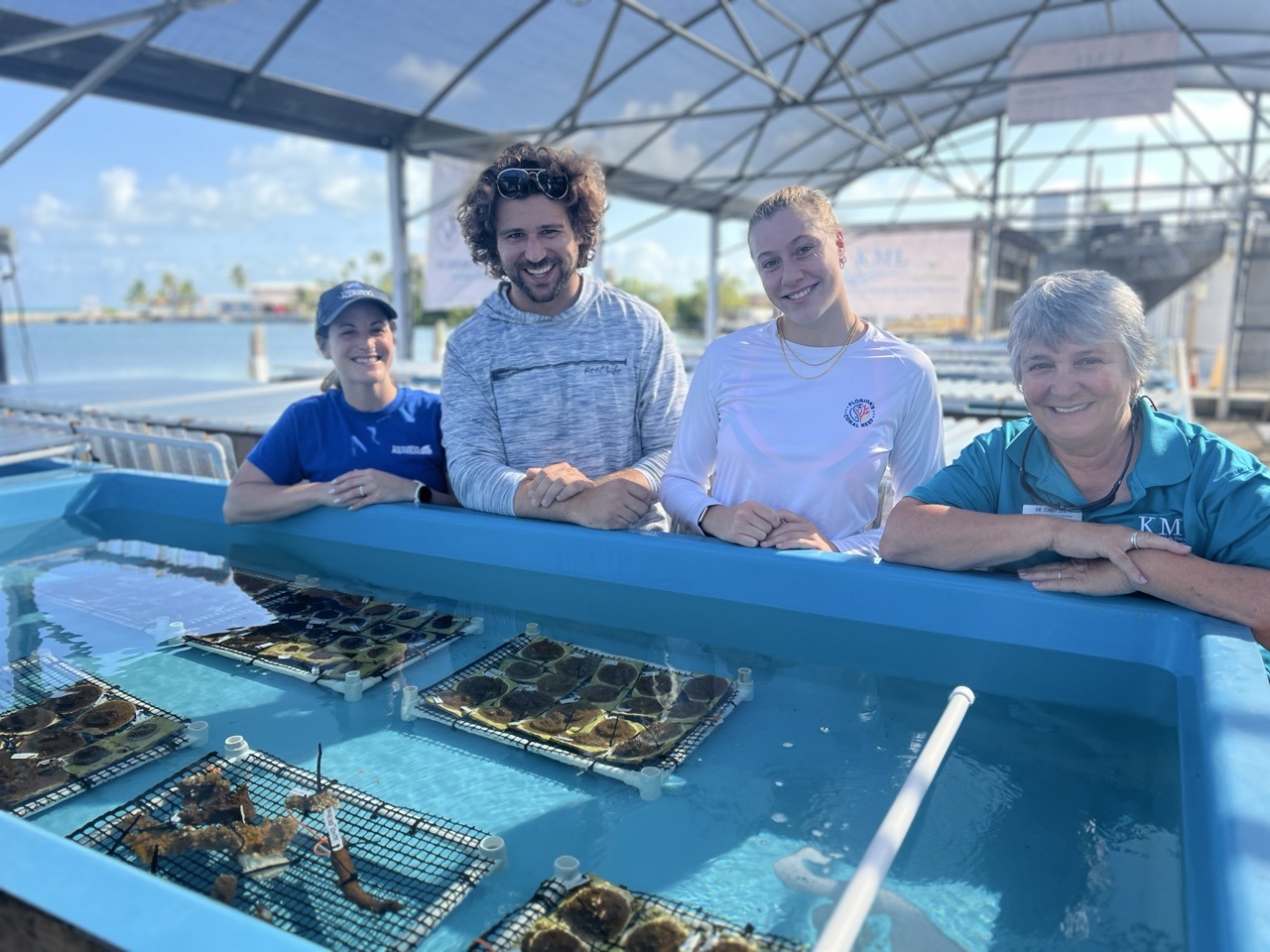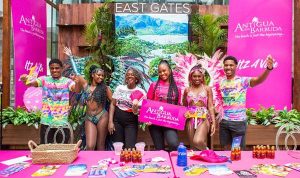While annual bleaching events and diseases continue to ravage coral reefs around the world, the Keys’ reef tract got a little shot in the arm last week as more than 1,000 baby corals made their way from the Florida Aquarium (FLAQ) in Tampa to Keys Marine Lab (KML) in Layton.
What began as an early morning on Florida’s west coast ended well after sundown at Keys Marine Lab on May 7. Aquarium staff and coral restoration partners offloaded coolers of baby elkhorn corals born in 2022 and 2023 at the aquarium, destined to play their part in restoring the Keys’ iconic reefs.
The day served as a homecoming, of sorts, for the young corals – while they came from land-based aquatic systems at the aquarium’s prolific coral propagation facility in Apollo Beach, their parent colonies were rescued from the Keys just before a massive coral bleaching event decimated large portions of Florida’s southernmost reefs.
Bleaching, as its name aptly implies, is a term for when stressed corals release the symbiotic algae that typically live inside them – and give them their color. Without those algae, called zooxanthellae, the corals lose a major source of nutrition and become susceptible to disease and death.
The most recent bleaching event, according to the International Coral Reef Initiative, is the worst global bleaching event in recorded history, shattering records while affecting 84% of the world’s coral reefs since January 2023.
“The summer of 2023 was devastating to Florida’s elkhorn coral population,” said Keri O’Neil, director of the FLAQ’s coral conservation program. “The coral juveniles we are transferring today are made up of many new mother and father combinations that we hope will be more resilient to future stressors. Without human intervention, these parent corals would not be able to breed due to the extent of the loss. They’re a sign that, even during a crisis, we can make progress.”
After a period of acclimation at KML, Keys-based restoration practitioners Coral Restoration Foundation, Mote Marine Laboratory and Reef Renewal USA will each receive roughly 300 corals, with Sustainable Oceans and Reefs (SOAR) set to receive 100. The corals will make their way out to ocean-based nurseries operated by project partners before eventual outplanting at Mission: Iconic Reef sites inside the Florida Keys National Marine Sanctuary.
One week prior, a group of 150 additional elkhorn corals was delivered safely to the Keys before being outplanted by FWC’s restoration ecology teams at Marathon’s Sombrero Reef and Key Largo’s Horseshoe Reef.
The aquarium said it will also provide restoration partners with about 40 fragments from the original parent colonies, used to grow and create new coral colonies. Monitoring both the new corals and parent colonies will provide crucial information in identifying genetic factors that could help corals survive future stress events.
This month’s delivery is far from the first time the Florida Aquarium has helped return young corals to the Florida Keys’ reefs after devastating events. Three years ago, the Weekly met the Florida Aquarium’s team at KML to witness the delivery of 560 brain and flower corals for outplanting at a site near the Tennessee Reef Research Only Area off Long Key.
Corals delivered in 2022 were the offspring of parent colonies collected as part of the Florida Coral Rescue Project, an initiative designed to retrieve and preserve corals before they could become infected by a deadly outbreak of stony coral tissue loss disease.
Photos courtesy of the Florida Aquarium, NOAA and Keys Marine Lab.
MARATHON WEEKLY
305.743.0844
9709 OVERSEAS HWY
OLDE TOWNE CENTRE
MARATHON, FL 33050
UPPER KEYS WEEKLY
305.363.2957
89240 OVERSEAS HIGHWAY, SUITE 2
TAVERNIER FL 33070
KEY WEST WEEKLY
305.453.6928
5450 MACDONALD AVENUE, NO. 5
KEY WEST, FL 33040
Get Keys Weekly delivered right to your inbox along with a daily dose of Keys News.




